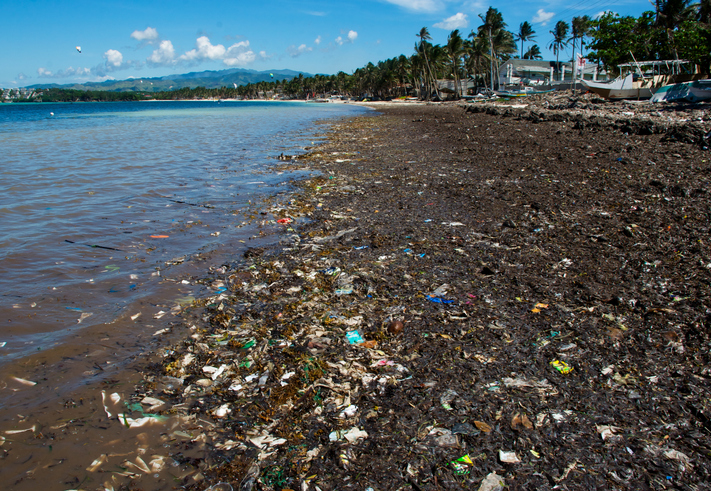Tourism, and the various associated practices involved in this industry, have been evolving over the years. Keeping up with global concerns as well as lifestyle trends, more tourists have become environmentally conscious, prompting the industry to adopt more eco-friendly practices. To many people, the terms Green Tourism, Ecotourism, and Sustainable Tourism may sound like the same thing, to be used interchangeably. However, each of these terms refers to different practices followed by the tourism industry, from the running of hotels to how tourists behave. It is important for tourists and the industry to be responsible, and learn the differences between these terms, so they can make informed decisions.
What We Will Cover In This Article
People have been growing more and more environmentally conscious with each passing day, and are looking for more eco-friendly alternatives in their daily life. This has extended to travel too and given rise to Ecotourism, Sustainable Tourism, and Green Tourism. Here, we will take a closer look at the three, to figure out the main differences between them.
Also read: Do we really care about sustainable tourism practices?
What Is Green Tourism, Ecotourism And Sustainable Tourism?

Back when it started in the 1980s, green tourism meant small-scale tourism that comprised visits to natural areas while minimising environmental impact. However, over time it adopted a broader meaning—tourism activity that is environment-friendly in nature. Although green tourism sounds eco-friendly, it is quite the opposite today. Over the years, the term has earned a bad reputation as many hotels and tours have been using it as a marketing tactic, while not actually doing anything to reduce the damage they have been causing the environment, a practice known as greenwashing. This term is a tag that hotels assign themselves to even though they haven’t adopted even the most basic sustainable practices like recycling and water conservation.
According to The International Ecotourism Society (TIES), ecotourism is “responsible travel to natural areas that conserves the environment, sustains the well-being of the local people, and involves interpretation and education.” Ecotourism is all about going out into the natural world as opposed to cities and is more about what you do in a place than where you stay.
Sustainable Tourism, according to the UN World Tourism Organisation (UNWTO), refers “to the environmental, economic and socio-cultural aspects of tourism development. A suitable balance must be established between these three dimensions to guarantee its long-term sustainability.” The concept behind sustainable tourism is to visit a certain place as a tourist and have a positive impact on its community, local economy, and the environment to guarantee sustainability. In simpler words, under sustainable tourism, the focus is on the environmental, financial, and socio-cultural aspects of the area that is being visited.
The main difference between ecotourism, green tourism, and sustainable tourism is that the latter has much wider scope. A key difference between sustainable tourism and ecotourism is that the former includes all kinds of travel from luxurious to even meagre or simple explorations, and covers everything from rainforests to cities.
Also read: A guide to zero waste travel and how to pack for it
What Is The Difference Between Them With Regard To Their Purpose?

Although green tourism has gained a bad rep over the decades, its primary purpose is to generate economic benefit, while minimising harmful effects on the environment. Ecotourism aims at connecting tourists with nature, building environmental and cultural awareness and respect, ensuring that both the tourist and the host have a positive experience, creating direct financial benefits for conservation, between locals and private industries, and minimise physical, social, behavioral, and psychological impacts. UNWTO lists the purpose of sustainable tourism as making optimal use of environmental resources that are key to the development of tourism, maintaining essential ecological processes, helping conserve the natural heritage and biodiversity, respecting host communities, and ensuring viable and long-term economic operations that will provide economic benefits to all the stakeholders (benefits that are distributed fairly).
Some Examples of green tourism, sustainable tourism, and ecotourism:
- Some green tourism initiatives are the use of environment-friendly cleaning supplies, room keys made out of sustainable materials, or a water-conservation programme.
- Those who participate in ecotourism usually ensure that the place they are travelling to is protected from external danger, and use locals as guides in order to get an authentic experience of the place. This way, they try to make a positive impact on the place and the locals. Primary attractions for the ecotourism industry are the flora, fauna, and cultural heritage of the specific area.
- Some practices that are typical of sustainable tourism are supporting community conservation projects, recycling and treating wastes, sourcing locally-produced products for restaurants and gift shops, conserving water and energy, hiring staff from the local community, training them, and paying them fair wages.
Businesses that practise sustainable tourism take concrete measures to enhance the well-being of the local communities. They also make positive contributions to the conservation of the area’s natural and cultural heritage. This way, they not only support and develop the area but also cut down their own costs. An additional benefit is that they attract more responsible travellers.
Also read: Can you travel eco-friendly even on a budget?
How To Tell If An Establishment Supports Green Tourism, Ecotourism, Or Sustainable Tourism?

Tourists must take the extra effort to dig deeper and do their research before booking a hotel or purchasing a tour package. Many tourism businesses that want to avoid looking that they indulge in greenwashing will specify what methods they adopt to reduce their environmental impact. They will also use terms like ecotourism and sustainable tourism on their websites while also explaining the various green initiatives they have undertaken. These make it easier for tourists to view the concrete steps these establishments have taken to protect and conserve natural resources, protect wildlife, and contribute towards the welfare of the locals. Additionally, organisations like the Global Sustainable Tourism Council (GSTC) and The Rainforest Alliance grant certifications to establishments that are making a noticeable effort in practicing sustainable tourism or ecotourism.
Leave A Happy Footprint, Not A Carbon Footprint
Living, let alone traveling or touring, responsibly is not an easy task. However, if we want our future generations to be able to enjoy the sights and sounds that we enjoy today, it is our responsibility to support a sustainable and environmentally friendly tourism business. By practicing ecotourism or sustainable tourism, we not only mitigate our impact on the environment, we also help develop local businesses and communities that have, so far, been side-lined by conventional forms of tourism.


